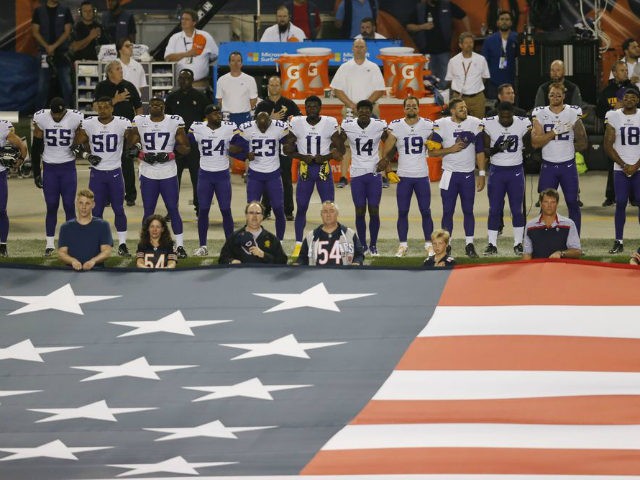Melvin Carter III, incoming mayor of Saint Paul, Minnesota, proclaimed the national anthem an “ode to slavery” during his inaugural address.
Carter said he would approve of playing the national anthem, but only if “all” the verses were played, including the verse he insists proves the song celebrates slavery, Pioneer Press reported.
“We cannot ignore the painful reminder, written into our anthem’s third verse, of just how deeply injustice is rooted in the American tradition. … Our national freedom song is an ode to slavery,” Carter said during his address.
“This is the American paradox, passed from generation to generation, dating back to the noble group of rich, white, straight, male landowners who embedded into our founding principles a yearning for a set of God-given rights they sought to secure for only themselves,” the newly minted mayor continued.
The mayor went on to quote the verse he claims has been purposely left out of the anthem:
And where is that band who so vauntingly swore
That the havoc of war and the battle’s confusion,
A home and a country, should leave us no more?
Their blood has washed out their foul footsteps’ pollution.
No refuge could save the hireling and slave
From the terror of flight, or the gloom of the grave:
And the star-spangled banner in triumph doth wave,
O’er the land of the free and the home of the brave.
Carter pointed to the line “No refuge could save the hireling and slave” as “proof” that the song celebrated America’s “peculiar institution,” chattel slavery:
However, few reputable historians substantiate Carter’s interpretation of the verse.
The claim has been ridiculed by many historians, who say the words actually referred to the British Navy’s practice of impressing American sailors into serving the Crown, essentially making them slaves to the British Navy. That practice, known at the time as impressment, was one of the main causes of the war. In addition, large numbers of black soldiers were fighting for the U.S. during the war that sparked Francis Scott Key’s writing the tune, and Key was aware of that.
Even a 2016 Snopes article said the claim that the verse is a celebration of chattel slavery is hardly a foregone conclusion and that many historians dismiss the connection to America’s slaving practices.
A further point tends to debunk the “slavery” claim about the song. Indeed, the version of the song officially enshrined as our national anthem does not even contain the purportedly offensive verse. The verse had been written out of the song during the decades following the Civil War and up to the time it became our official anthem in 1931. So the “slavery” verse was long gone before Congress adopted the song as our national anthem.
Follow Warner Todd Huston on Twitter @warnerthuston.

COMMENTS
Please let us know if you're having issues with commenting.